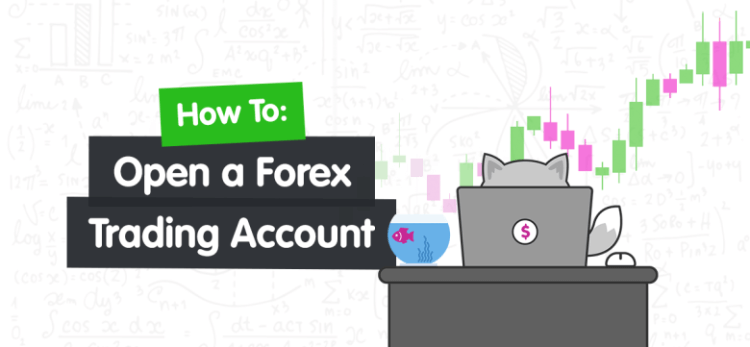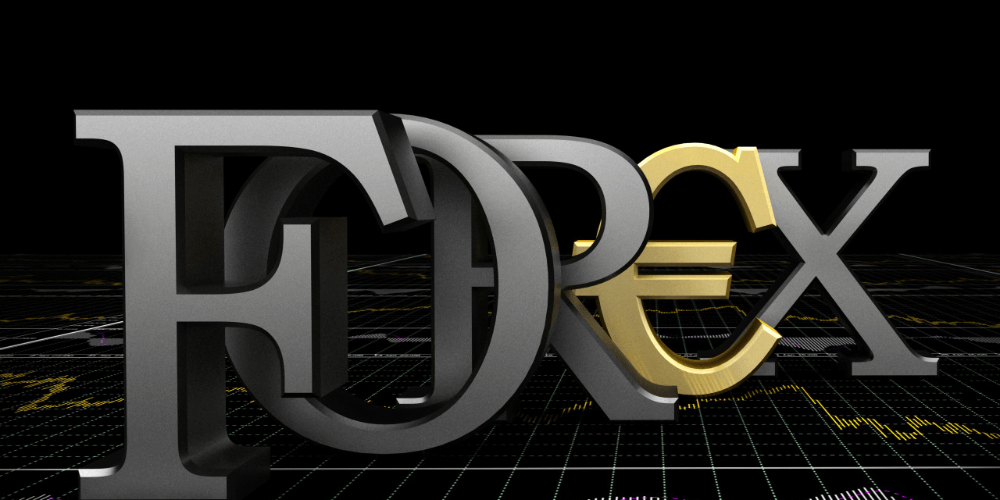For trading online, you are required to create a Forex trading account. After registering, you will probably have to select between certain accounts.
The top Forex Trading accounts are the ones that are suitable for your personal needs. Here, we will uncover the choices you have for the trading account. Also, we will discuss how these choices influence your trading performance.
Best Forex Trading Accounts
| Rank | FX Broker | Rating | Visit | Min. Deposit | Regulation | Review |
|---|---|---|---|---|---|---|
| 1 |  FxPro | VISIT BROKER | $100 | FCA, CySEC, FSCA | READ REVIEW | |
| 2 |  Admiral Markets | VISIT BROKER | $100 | FCA, ASIC, CySEC, AFSL | READ REVIEW | |
| 3 |  HYCM Capital Markets | VISIT BROKER | $100 | FCA, CySEC, DFSA, CIMA, FSC | READ REVIEW | |
| 4 |  Vantage Markets | VISIT BROKER | $200 | FCA, ASIC, VFSC | READ REVIEW | |
| 5 |  OctaFX | VISIT BROKER | $25 | CySEC | READ REVIEW | |
| 6 |  XM | VISIT BROKER | $5 | CySEC, FSC | READ REVIEW | |
| 7 |  IQ Option | VISIT BROKER | $10 | CySEC | READ REVIEW | |
| 8 |  AvaTrade | VISIT BROKER | $100 | CySEC, FSCA, B.V.I, ASIC, FFAJ, FRSA, ADGM | READ REVIEW | |
| 9 |  Plus500 | VISIT BROKER | $100 | FCA, CySEC, ASIC, FSA, FMA, MAS, FSAS, DFSA | READ REVIEW | |
| 10 |  IC Markets | VISIT BROKER | $200 | ASIC, FSA, AFCA, FSCS | READ REVIEW | |
| 11 |  Libertex | VISIT BROKER | $20 | CySEC | READ REVIEW |
After reading this article, you will learn the following:
- The most exceptional Forex Trading account.
- Types of accounts, i.e., standard account, mini/micro account, funded account, managed account, etc.
- Account type consideration based on geography/region.
How to Open a Forex Trading Account
While creating a new Forex trading account, what should be taken into account?
- The brokerage organization. Is it a well-reputed firm or a fraud?
- The services it offers.
- Incentives and costs involved.
- The type of account that is best suitable for your needs.

After resolving these problems, there is another three-step method for creating an account:
- Fill out the application form with the needed information.
- Fund your account
- Begin hunting down the investment opportunities.
After opting for the organization, you should consider each of these factors. You should know whether the chosen dealer is a reliable source for traders. Though fewer in number, however, scammers are still prevalent. Opening a real money account with such dealers is like throwing your money into the river.
Also, you must know about the incentives offered by your dealer and compare them with the costs. The dealer has to accept the type of account you want and provide good services. You might have a suitable method of funding. However, that method might or might not be accepted by the dealer.
Critical Services You Should Be Looking for
- Right trading platforms possess rather technical analysis widgets.
- Unique characteristics you might require.
- Trading Foreign Markets.
- Approach to research and education.
- Ease of use. Individual dealers provide face-to-face guidance. While others do not. Concerning the trust factor, it is always rational to go for the dealer having physical offices near you.
Regarding incentives, specific dealers do not charge any commission. On the other hand, some might give you rewards for your accomplishments as a trader. You might even prefer to keep your funds with the dealer if it presents your awards.
Ensure that you go through and comprehend your dealer’s entire pricing policy.
Finding the most suitable type of trading account for fulfilling your requirements relies upon the kind of trader you are and your goals.
While filling out your application forms, remember that you will be required to give information regarding your investable assets, employment status, and net worth. Certain people find such inquiries invasive.
Also, you are required to provide your ID/driver’s license’ copy. If you want access to margins or trade options, you might be required to give extra information.
The following are specific accepted methods of funding accounts by dealers:
- Bank transfer.
- Multiple electronic wallets like Skrill, Paypal, etc.
- Electronic funds transfer.
- Checks.
Several dealers might also accept asset transfers and paper stock certificates.
Finding the Best Forex Trading Account
The unique type of account is the one that is most suitable for your needs and personal profile. The elements that must be considered in this regard lie in 2 prime categories:
- Your investment goals.
- The kind of trader you are.

Forex Trading Account Selection Based Upon Your Investment Goals
Most “casual” traders invest with a comparatively short-termed objective. Such attempts are usually operated by “make some money” slogans. If this slogan describes your investment goals, you likely require a standard or traditional account.
These types of accounts offer no tax advantage. Also, these accounts do not confine your investment for extended periods.
This type of account might also enable you to trade on margin, which comprises borrowing money from the dealer. The assets in your account will act as security or collateral. Some apparent risks are involved in trading on margins.
If your objective is keeping your nest egg safe for retirement, then your option is Individual Retirement Account (also called IRA). Every IRA option, like Roth IRA, Rollover IRA, and Traditional IRA, offers tax advantages. However, the disadvantage is that you can only touch this money when you’re old.
Forex Trading Account Selection Based upon the Kind of Trader You Are
- You are a novice trader – And you are not an experienced investor; at this point, education is what you need. Perhaps, specific quality trading signals too. In short, you require an account by which the dealer can hold your hand. It might be that you don’t have high ambitions. But, you must know the reason for what you’re doing. The significant elements in choosing your account are user interface and client service.
- You’re a “value” investor – Assets are bought and held by this type of investor for selling them when acknowledged. They are not active traders. If you’re a value investor, you appreciate the fundamental analysis. However, you have little usage of charting and technical indicators.
- Passive Investing – The traders that invest in index funds inactively do not need much from their dealer. They don’t require the hands of their dealers as novice traders require. They only require an approach to index funds and the selection of a quality tradable asset under this category.
- High-Frequency Traders – Active traders do not hold their positions for a more extended period. They carry out buying and selling with high frequency. So, they require every additional feature offered by their dealer. They need quality trading platforms along with excellent charting. Moreover, a fully-functional interface and brilliant reporting are also essential. Technical analysis is the primary source of income in this category. Trading costs also hold great significance for high-frequency traders.
Kinds of Forex Trading Accounts
There are four basic trading accounts: Standard, Funded, Micro/Mini, and Managed. We will uncover each type in detail below.
In these categories, there are some other variants, like the Micro accounts. Particular types of accounts, like Islamic, Demo, and VIP accounts, are also plentiful. Each of these accounts possesses certain advantages as well as disadvantages.

Standard Accounts – This account originates from the standard lots to which it gives access to the traders. The worth of a standard currency lot is 100,000 Dollars. This vast amount keeps this type of account out of the bound of mediocre traders.
However, you can trade even if you don’t have 100,000 dollars in your account. The presence of leverage and margin implies that you will need 1,000 dollars to trade a standard lot.
Leverage differs depending upon several things. Forex offers leverage at 1:30 in the EU. In other places, even on standard accounts, dealers might provide leverage up to 1:500.
For Standard account holders, full service is offered by dealers. This type of account demands upfront capital. Hence, all of these are depositing traders. Another essential factor of this type of account is the profit potential.
The same is the case with loss potential. Due to this reason, you must carry out trading via a Standard account only if you are a professional trader.
Funded Accounts – Dealers or any financial company finances some traders. Starting capital is provided to them for a portion of their future profits.
How does it work?
Would-be Funded account holders are required to pass an evaluation program. If the dealer’s analysts regard them as quality candidates, they are granted a funded account.
Funding can reach millions of dollars. Profit splits are in the range of 50%. These accounts comprise monthly profit goals. Traders who are successful in fulfilling the purposes can acquire extra funding.
The profits are paid out periodically by the dealer.
What are the requirements for securing a funded account?
- Firstly apply to the evaluation program.
- Carry out trade via the evaluation account and arrive at the targets/goals.
- Acquire a suitably funded account and begin making money for the account provider and yourself.
Micro and Mini Accounts – 100,000 dollars a Standard account presents lots. Mini accounts are an alternative for traders who cannot afford to trade in this range, regardless of leverage and margin. This type of account supports mini lots, each worth 10,000 dollars. These accounts typically go with Standard accounts and hunt for new traders.
This approach is taken to an upper level by Micro accounts. This account supports 1,000-dollar lots and is more economical than Mini accounts. Micro accounts also hunt for novice traders.
Risk-minimization is the prime benefit of Micro as well as Mini accounts. You can open your account for just 250-500 dollars. Trading in lower increments can elongate your funds too. Professionals prefer to use such accounts and experiment with their techniques in an actual-money, low-risk atmosphere.
Additionally, intrinsic features like risk-reduction, Micro, and Mini accounts enable you to spread your funds narrower. Hence, you can manage with minimized risk.
The apparent disadvantage is that the profit potential is reduced due to risk reduction. Therefore, these accounts are barely suitable for covering the profit requirement of experienced traders.
Managed Accounts – A managed account keeps your funds but precludes you from making any decision. You make deposits, and someone, typically on the dealer’s end, trades for you. However, you might be allowed to set goals.
Why would you prefer to give up authority through a trading account like this?
– You’re a beginner who thinks the manager can do the work better than you. So, you allow him to manage your trading account.
– You think that pooling your money with other investors’ funds provides a sense of security. The working of these types of accounts is like mutual funds. The managers manage to trade, and they also distribute profits.
The managers rank these pooled accounts based on risk tolerance. Traders interested in higher profits choose accounts with more risk, and those with low-risk tolerance are safer but acquire less monetarily.
The prime benefit of managed accounts is that they enable you to take advantage of a Forex professional’s skills. Moreover, it’s a hands-off trading style.
The downside is that the Forex professional will cut, from your profits, a commission. Such accounts demand more considerable deposits than regular ones. An individual account might require ten thousand dollars. Whereas pooled accounts are a bit economical, requiring 2,000 dollars.
Islamic Accounts – In Islam, trading is prohibited (Haraam). However, we can make it halal (permitted) in specific ways.
Every trading activity must strictly remain confined to the following Islamic Finance principles:
- Interest-free trading.
- Immediate exchanges in trading,
- No gambling activity.
- The fair distribution of benefits as well as risks.
These accounts are swap-free, through which instant transactions and cost payments can be made. The commission, margin, and administrative fees are unattractive in Islamic accounts.
VIP Accounts – dealers set aside VIP accounts for their elite clients. Such account holders cherish unique advantages, i.e., top-notch trade conditions. VIP traders are usually invited by the Forex brokerages to special occasions, treating them to select prizes.
How can you get access to a VIP account?
You are usually required to deposit a considerable amount, over 100,000 dollars. Also, you’ll need to trade more often and might need to reach some trade volume requirements.
Demo Accounts – A demo account replicates a real account with fictional money through which traders can assess the platform and trade conditions. Certain people employ this account to test their strategies.
After registering for a demo account, the dealer credits a predefined amount of fictional funds to your account. Individual demo accounts provide the same features and tools as the Micro/Mini/Standard account. Others allow users to access some of the features.
Regional Factors on Account Types
Sometimes, your regional location must be considered while selecting your account type. Some trade types might be restricted due to specific rules and regulations. CFD trading is not allowed in the US since it contradicts US laws.
Among the EU-regulated countries, e.g., the UK and other regions, leverage differs significantly. ESMA, the European regulator, limits the EU forex margin to 1:30.
In other regions, e.g., India and South Africa, leverage can be provided up to 1:1000 (1:400 or 1:500 are typical).
The taxes you are obliged to pay on your profits depend on jurisdictions. Read more on our taxes page.



